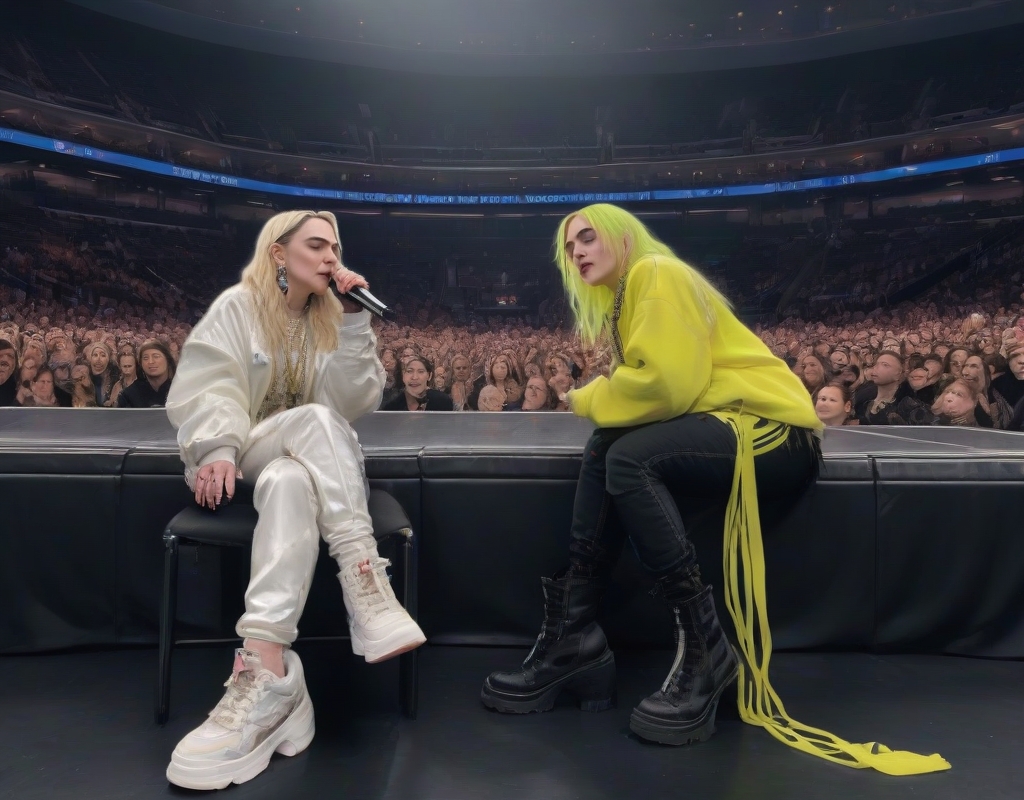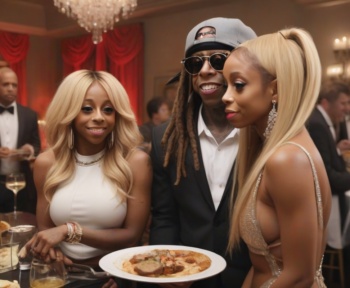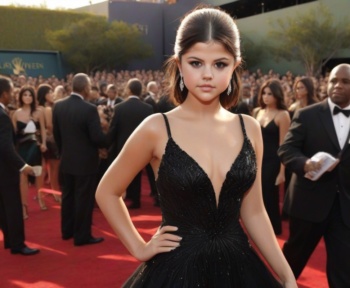In a striking manifestation of musical continuity and the merging of different artistic epochs, Madonna, widely regarded as the Queen of Pop, graced a Billie Eilish concert at the celebrated Madison Square Garden in New York City. This appearance wasn’t merely about attending a musical performance; it was a symbolic meeting of two distinct generations of groundbreaking artists in the pop music scene.
Madonna’s attendance at this event goes beyond simple admiration for Billie Eilish; it symbolizes the regenerative and cyclical nature of the music industry, where the torch of innovation is passed from one artist to another across generations. Both of these artists have caused significant waves in the pop music landscape by pushing the boundaries of their respective times.
The night turned into a rich tapestry of melodies and influential presence when Madonna, accompanied by her boyfriend, Akeem Morris, entered the venue. Billie Eilish, known for her deep, ethereal vocals and a mix that spans pop, electronic, and indie, captivated the audience with a performance that solidified her status as a leading voice for contemporary music enthusiasts. The diverse demographics of the audience mirrored the universal appeal of her music, symbolizing the unifying language of musical artistry.
Considering the historical and cultural contexts of their careers highlights even more the significance of this intergenerational moment. Madonna, whose meteoric rise began in the early 1980s, has been synonymous with constant reinvention and creative innovation. Songs like “Like a Virgin” and “Vogue” didn’t just entertain; they challenged societal norms and shaped the direction of pop music. On the other hand, Billie Eilish, a voice of the late 2010s, reflects the current societal pulse with her themes that touch on mental health, interpersonal relationships, and the introspective struggles of modern youth.
Their mutual recognition at the concert underscored a rare and meaningful narrative of admiration and artistic influence. Madonna has expressed respect for modern artists who, like her, challenge the status quo and defy easy categorization. Billie, for her part, has acknowledged Madonna as a profound influence, embodying fearlessness and creative freedom.
One concertgoer captured the sentiment of the evening perfectly, noting that Madonna’s presence marked a “full-circle moment”—a bridge spanning the eras that have helped shape contemporary pop music. This sentiment of connecting different musical eras resonated widely across social media platforms where fans and commentators lauded the significant cultural imprint of both artists’ works.
Seeking deeper understanding of such an iconic occurrence, insights from music industry experts provide a broader perspective. Dr. Emily Carter, a professor of Musicology at New York University, remarked on the importance of this meeting, highlighting it as a clear display of mutual respect and collaboration spanning different musical generations, becoming more visible as the music landscape becomes ever more eclectic.
Adding to this narrative, music journalist Alex Reed discussed the broader impacts, suggesting that such moments are pivotal as they reinforce the idea of music being a continually transformative medium, where artists both past and present learn from and influence each other.
In terms of their enduring influence, Madonna continues to be one of the best-selling music artists globally, impacting countless fans and artists along the way, whereas Billie Eilish has quickly ascended to similar heights in her relatively short career, exemplified by Grammy victories and unprecedented streaming numbers.
Also noteworthy during the event were the less spotlighted but equally influential figures of Akeem Morris and Finneas. Akeem Morris, beyond being Madonna’s partner, has shaped some of her recent artistic endeavors through his work in film and production, reflecting the interconnectivity across various forms of art. Finneas, Billie’s brother and primary collaborator, significantly shapes her sound as a producer and songwriter, underlining the collaborative essence prevalent in contemporary music-making.
The concert ended with impactful renditions that lingered in the hearts of those present, illustrating the connective force of music across time and style. For attendees, this wasn’t just another live performance; it was a poignant experience of historical, aesthetic, and emotional resonance.
Madonna’s presence at Billie Eilish’s performance transcends a simple musical outing; it carries forward the narrative of artistic evolution and mutual appreciation that spans generations. It is a testament to the continuing journey of musical icons who not only shape their eras but also inspire future sounds.
Ultimately, the evening was an emblematic celebration of not only creative legacy but also the relentless advance of music as an expressive art form. Through their unique paths, both Madonna and Billie Eilish stand as beacons of innovation, authenticity, and the transformative power of music. As the last notes of Billie’s performance faded into the corridors of Madison Square Garden, the spirit of continually evolving music continued to resonate, timeless and eternal.




